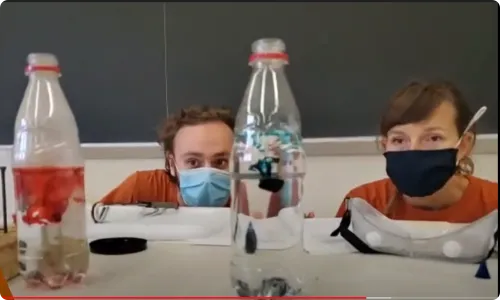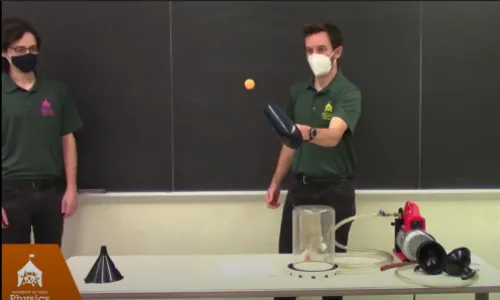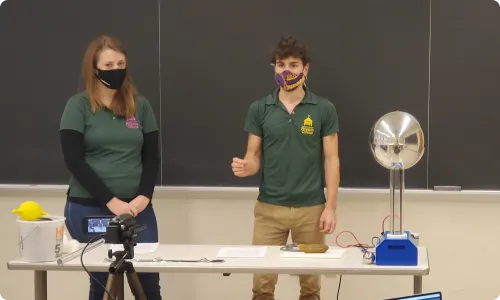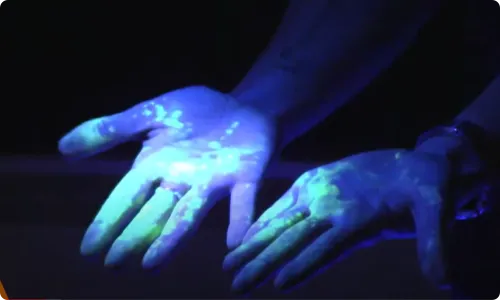Everybody Chill Live Performance
Did you know all of the "stuff" in our universe is made out of the same basic building blocks? These tiny units are called atoms and they form together in different states of matter - solids, liquids and gases. We can explore how atoms interact in these different states by subjecting them to different ranges of temperatures.
One of the coldest substances readily available in the science community is liquid nitrogen, sitting at a whopping -320 degrees Fahrenheit; that's much colder than the South Pole! The difference between gaseous and liquid nitrogen is space between the atoms. In the liquid form atoms are much closer together and less energetic than the gaseous form. They huddle together in a flowing mass of liquid, with weak bonds between them, and they take up much less space. If you cooled down the liquid nitrogen even further, you would slow down the atoms to a near halt and they would be tightly bound together as a solid.
Most of the objects we interact with on a daily basis are solids. If we cooled an object, like a racquetball, down to liquid nitrogen temperature, the atoms would be arranged nearly frozen in place. Our racquetball would become less springy and more brittle and might shatter like glass if dropped. It wouldn't be very useful to play sports with anymore. However, you could always recover your original bouncy racquetball if you are patient and let it warm back up to room temperature. You could invent all kinds of solutions using different states of matter - if you're ever in need of a hammer and all you have is a banana, try cooling it down first until you transform it from a liquid-like state into a solid state of matter. We've successfully used banana hammers many times before!
The UT Physics Circus is a graduate student-led traveling demonstration show that shares the excitement of basic physics concepts with elementary students in the greater Austin area. We prioritize low-income areas that wouldn't normally have access to the types of hands-on science equipment and concepts, such as air pressure, electricity, temperature and more. If you would like to request a dedicated virtual show, please visit our website and contact us: https://web2.ph.utexas.edu/~circus/index.php.






